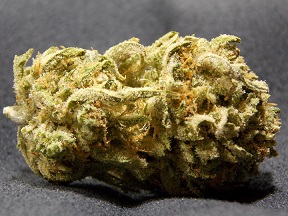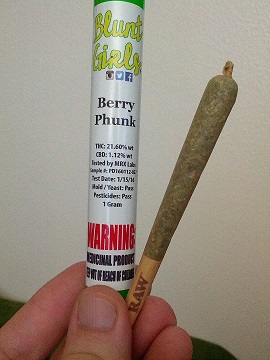Log In To Your Account
Log In With Facebook
As more and more states join the Green Rush, cannabis users have lower and lower chances of having the government punish them. During the 1990s, criminal penalties for possession in states like Nevada and California used to include federal prison time and even death sentences. Today, more and more states are making even recreational use of marijuana penalty free (if you don’t count taxes as a penalty).
Yet there is a large segment of the cannabis community that is feeling very threatened right now. People in states like Washington, Ohio and Maine have been put in a position where they feel forced to oppose recreational legalization. Because of how their state’s medical and recreational marijuana laws are written, many patients are facing increasing pressure from a merged system.

Decades of activism by thousands of individuals has contributed to the change in marijuana policy. Groups like the National Organization for the Reform of Marijuana Laws (NORML),The Marijuana Policy Project (MPP), and the Drug Policy Alliance (DPA) have all been major drivers behind the changes in public opinion and policy.
Even after the laws had been changed, many of these same individuals had to continue fighting. Deep-seated interests and personal prejudices by authority figures have made it tough to get reform without adding risk to patients. But it isn’t just the big players that are trying to protect medical programs.
That person is Eric Mevis. Eric is a 43-year-old medical marijuana patient suffering from a rare neurodegenerative disorder. Along with Dr. Gregory Carter (a Spokane-area physician who works with medical cannabis patients) the two have filed a lawsuit.
The suit was filed due to fear caused by these new requirements. Dr. Carter felt compelled and coerced into censoring his conversations with patients, curtailing severely the information he felt able to provide to patients regarding the risks and benefits of medical marijuana.
In essence, Eric is working to ensure that everyone can obtain marijuana without fear of federal penalties. Even legal counsel within Washington was divided on whether the state’s requirements would open people to the liability Mevis and Carter claim. If even law professionals can’t reliably predict the outcome of signing a form, how are patients supposed to trust that the information they provide won’t later be used against them?
The big fear is with how certain documents are worded.  According to the suit, Dr. Carter has reviewed the mandatory marijuana authorization form and believes that he will violate federal law if he is forced to use the form. He has since told his patients that he could no longer write authorizations for medical marijuana and this is due entirely to the changes made by SB 5052.
According to the suit, Dr. Carter has reviewed the mandatory marijuana authorization form and believes that he will violate federal law if he is forced to use the form. He has since told his patients that he could no longer write authorizations for medical marijuana and this is due entirely to the changes made by SB 5052.
While the Washington Department of Health (DOH) assures both doctors and patients that they need fear nothing, there is enough controversy between legal professionals to reveal the legal grey area that cannabis inhabits in America. As more states join the Green Rush, more patients and doctors will find themselves in a similar position.
Well known anti-cannabis crusader and Maine Governor Paul LePage recently had to swallow a bitter pill as the people of Maine voted for full legalization. LePage wants to eliminate the state’s medical marijuana program regardless of the vote but took special actions to prevent legalization from happening in late 2016.
Right before the state’s recreational marijuana initiative (which was called Question 1) went before the voters, he released and later removed a video calling marijuana deadly”. He made additional false claims that cannabis is a gateway to heroin addiction despite scientific evidence to the contrary.
While LePage was busy trying to start a panic to prevent people from legalizing marijuana, actual doctors were healing opioid addiction with cannabis. One of the doctors on the forefront of treating opioid addiction is Massachusetts based Dr. Herald Altervater. In an interview with the Partnership for a Drug Free America, Dr. Alvater talked candidly about why cannabis is used to treat opioid addiction in Massachusetts. He said:
You are basically taking something that can be very harmful for an individual, and substituting it with another chemical, just like you would any other drug, that has a wider safety margin. So if the goal is to decrease the body count … the goal would be to get them on to a chemical that was safer.
Luckily for the people of Maine, they (like Oregon) knew better than to listen to the fear mongers and chose to legalize recreational marijuana. Let’s hope they can keep the politicians from dismantling their medical program.

Besides the issues of legality and false claims is the additional cost patients face when using the recreational program. Where medical programs have cost limiting measures and special tax exemptions, recreational programs don’t. The difference in cost between the two systems for the same product can be staggering.
In Oregon for example, medical and recreational sales can be conducted at the same establishment. It is not uncommon for the dispensary to offer the same product to both clients. A medical patient can expect to pay between $3-6 per gram (tax free) depending on quality. Most dispensaries also help patients who struggle with the cost.
Dispensaries also help match up medical patients and medical cultivators. This matching is essential for many growers looking to make medical cannabis worth producing. The rules and reasons for this are long and complicated but it helps further reduce costs for all parties involved.
A recreational customer can expect to pay $6-16 dollars per gram depending on quality. Part of the difference in price is due to the 25% state sales tax and many cities enacted an additional 3% tax. Although taxes add to the increase in price, they don’t alone account for most of the price difference recreational and medical patients experience at dispensaries.
Recreational dispensaries in states with both have additional licensing and reporting requirements that come with a real world price tag. Some of these expenses include requiring fences for recreational operations but not medical, mandating expensive tests for pesticides in recreational but only conditionally for medical and so on.
While medical programs normally have rules to prevent a business from overcharging patients, no such protections exist for recreational users. Businesses are effectively free to make as much profit as they can from recreational sales while medical patients have limits on what they can be charged.
Access also becomes an issue when medical and recreational are separate. In Oregon for example, The Oregon Health Authority conservatively estimates that 40 percent of dispensaries will transition to the recreational market. Since Oregon cities can opt-out of medical marijuana, simply eliminating the medical program would remove access to medical marijuana in all 15 of the most populous cities east of the Cascades.
Limiting access to marijuana for that large of a population has additional complications. In cities that have 20+ dispensaries like Bend Oregon, competition helps keep costs low. But in areas with limited access like Elma Washington, patients have to pay whatever the ONE shop chooses to charge.

In addition to the mandatory taxes, dispensaries have millions of reasons not to help recreational customers that struggle financially. There are strict penalties in place for businesses that don’t follow every letter of the law. Nobody wants to lose the millions of dollars of investment it takes to open and run a dispensary because some dude couldn’t pay for a gram.
Likewise, it is hard to imagine someone is going to invest millions of dollars into a business and then choose to make less money than they could. Not only is it contrary to the point of a business but depending on how they have it set up, making less profit than possible could be illegal. In the end, whether they are simply following the rules or looking to line their pockets, recreational only dispensaries work against medical patients.
Medical programs serve a special segment of the community that can rarely protect themselves. They offer medical alternatives to dangerous treatments, assist low income and at-risk individuals and provides a safe medication. Medical marijuana is also one of the best tools we have to fight opioid addiction.
Without the support of the greater cannabis community, especially at-risk individuals like the elderly and the terminally ill, may find they simply cannot afford or legally obtain the medication they depend on. Organizations like NORML, DPA and the MPP play a big role in protecting medical programs but can’t do it alone.
Marijuana reform is sweeping the nation and improving millions of people’s lives in the process. It can be easy to get caught up in the idea that simply legalizing recreational sales will provide aid for everybody.
In reality though, it is a delicate balancing act between medical patients, recreational users, legal reform and economics. Nobody has discovered a magical ratio that makes everyone happy yet so it is up to each of us to help find the middle ground. I hope you can join me as we continue to fight for safe, reliable access for all. Thanks for reading.

An adventure seeking nerd, nothing too serious but people seem to like him, Adam is also the creator and writer for The Strain Domain